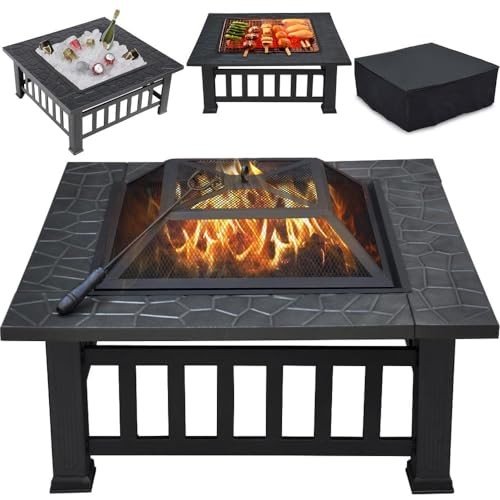The Best Fireplaces: A Comprehensive Guide for Homeowners
Fireplaces have actually long been a beloved function in homes, offering both warmth and a welcoming environment. They are available in various styles, sizes, and fuel types, enabling house owners to select one that fits their personal visual and heating requirements. This post dives into the very best fireplaces, highlighting key functions and considerations to help you make an informed decision.
Types of Fireplaces
Understanding the different kinds of fireplaces is essential in picking the very best alternative for your home. Below are the most commonly utilized fireplaces:
Wood-Burning Fireplaces
- Advantages: Traditional appeal, natural atmosphere, and efficient heating.
- Downsides: Requires routine upkeep, ash disposal, and undergoes regional regulations concerning emissions.
Gas Fireplaces
- Advantages: Convenient, clean-burning, and easy to run.
- Downsides: Requires a gas line, can be more pricey to set up initially.
Electric Fireplaces
- Advantages: Easy setup, low upkeep, and the safest choice for homes with children or pets.
- Downsides: Lack the authentic feel of wood or gas flames, might not heat up large spaces successfully.
Pellet Stoves
- Advantages: Eco-friendly, effective, and offer a stable heat output.
- Downsides: Requires electricity to run, and pellet supply can be limited in some areas.
Ethanol Fireplaces
- Advantages: No chimney required, portable, and eco-friendly.
- Drawbacks: Generally less efficient for heating.
A Comparison of Fireplace Types
| Type | Installation Cost | Running Cost | Heat Output | Upkeep | Environmental Impact |
|---|---|---|---|---|---|
| Wood-Burning | ₤ ₤ | ₤ | High | High | Moderate |
| Gas | ₤ ₤ ₤ | ₤ ₤ | Medium-High | Low | Moderate |
| Electric | ₤ | ₤ ₤ | Low | Very Low | Low |
| Pellet | ₤ ₤ | ₤ | Medium | Medium | Low |
| Ethanol | ₤ ₤ | ₤ ₤ ₤ | Low | Really Low | Extremely Low |
Leading Considerations When Choosing a Fireplace
When you're in the marketplace for a new fireplace, keep the list below consider mind to ensure you pick the best one for your home:
- Purpose and Functionality: What do you desire your fireplace to do? Is it for heating or looks? This will guide your option substantially.
- Area Availability: Measure the area where you wish to install the fireplace. Guarantee the selected type fits without frustrating the space.
- Fuel Source: Assess the schedule and expense of numerous fuel sources in your location to avoid unforeseen costs.
- Installation Complexity: Some fireplaces may need substantial alterations to your existing home structure.
- Structure Codes and Regulations: Be aware of local laws relating to ventilation, security, and emissions, as these can affect your fireplace option.
- Visual Appeal: The design and style of a fireplace can work as a focal point or enhance the existing design, so pick one that improves your home's overall visual.
Advantages of a Fireplace
Including a fireplace to your home pays for various benefits:
- Enhanced Aesthetic Appeal: A fireplace can elevate the decoration of any space, developing a cozy and welcoming environment.
- Increased Home Value: A well-installed fireplace can add considerable value to your home, making it appealing to prospective purchasers.
- Energy Efficiency: Modern fireplaces, especially gas and pellet ranges, can provide reliable heating while lowering energy expenses.
- Emergency Situation Heat Source: In cases of power failures, a wood or gas fireplace can serve as a trusted heat source.
- Celebration Space: Fireplaces typically become the focal point for events, promoting heat and convenience throughout family or buddies' parties.
Regularly Asked Questions (FAQs)
Q: How much does it cost to set up a fireplace?A: Installation costs can differ considerably based upon the kind of fireplace, structural requirements, and labor expenses. Fundamental electric fireplaces may cost around ₤ 300, while custom-made wood or gas fireplaces can range from ₤ 3,000 to upwards of ₤ 10,000. Q: Are electric fireplaces safe?A: Yes, electric
fireplaces are normally safe.
They do not give off carbon monoxide and have no open flames. They often consist of security features like automatic shut-off mechanisms. Fireplaces UK : How often must I have my chimney cleaned?A: If you utilize a wood-burning fireplace, it's suggested to have your chimney cleaned at least once a year
to prevent creosote buildup, which can lead to chimney fires. Q: Can I set up a gas fireplace myself?A: It's not a good idea to set up a gas fireplace without professional support due to the intricacies related to gas
lines, ventilation, and safety regulations. Q: What are the best types of fuel for wood-burning fireplaces?A: The best fuel choices include well-seasoned woods like oak, maple, or hickory, as they burn hotter and cleaner compared to softwoods. Selecting the very best fireplace for your home
involves thinking about numerous elements, from aesthetics to function and safety. Each kind of fireplace has its distinct benefits and prospective downsides.
Understanding these elements, along with your personal heating needs and spending plan restraints, will guide you in making an informed decision. Eventually, a fireplace can provide not just warmth but also a rich ambiance, changing your home into an inviting sanctuary.

